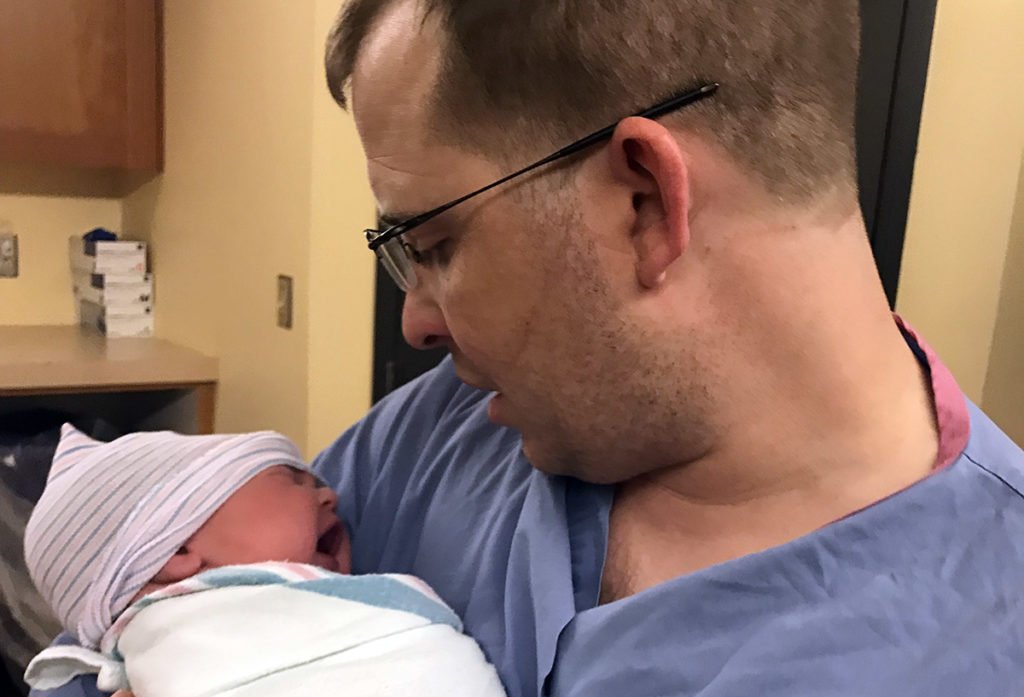
SCAN’s Washington State Mobilization Manager, Ryan Murphy, holds his newborn child.
There is no greater feeling than the moment you first hold your newborn child in your arms. I learned this a few weeks ago, when I witnessed the birth of my first-born child, Liam.
I will celebrate this Father’s Day as a first time dad because my family was fortunate to have access to outstanding medical care. After more than 36 hours of labor, under constant care of highly qualified nurses and doctors, my wife needed to have an emergency cesarean section (C-section). Within minutes, she was in an operation room. Moments later, we heard the first cries from our baby boy.
I am fully aware that the best day of my life could have been the worst day of my life if my family lived in the developing world, where many communities lack access to adequate maternal and child health care. Fortunately, we live in Seattle and have access to state-of-the art medical care.
Around the world, childbirth can be the most dangerous moment in a mother and child’s life. Every day, 800 women die due to complications during pregnancy or delivery. Every year, 1 million newborns die on the day they are born; and nearly 2 million newborns die in their first week after birth.
This Father’s Day, these statistics have a whole new meaning for me. As an employee of Save the Children Action Network, I have been proud of my work advocating for maternal, newborn and child survival policies. Now as a parent, I have an entirely new drive and passion for this work.
The U.S. government has committed to a worldwide goal of ending preventable child and maternal deaths within a generation. I’ve enjoyed working across the state of Washington to build public momentum for policies that would bring us closer to this ambitious and noble cause, such as the Reach Every Mother and Child Act (Reach Act).
The bipartisan Reach Act would help end preventable deaths of mothers and children by making sure our government works with other countries in the most effective way possible. It would also target the countries that need the most help and increase transparency to ensure taxpayers’ dollars are not wasted.
To guarantee that improving health access for women and children does not increase spending, the bill would help the United States Agency for International Development (USAID) implement a pay-for-success program, which can encourage other organizations, like those in the private sector, to invest their own resources in programs that would achieve important development goals.
Last year in the Indian State of Rajasthan—where 80,000 babies die annually due to inadequate medical care—USAID implemented its first pay-for-success model. The program known as the Utkrisht Impact Bond, named for the Hindi expression for excellence, will improve the quality of 440 private health facilities across the state. Under the new plan, 600,000 women will have access to improved care, including C-sections, which has the potential to save up to 10,000 moms and newborns.
This Father’s Day, as you celebrate the special men in your lives, please take a moment to think of those who stand to lose their partners, or newborn children, without improved access to maternal and child health care. Then take a moment to join me and ask Congress to pass the Reach Act.